Well-informed protagonists with excellent memories can be inconvenient. They can reveal all to readers at inopportune moments.1 If they already know what they need to know, they’re not going to search hither and yon for missing clues and information (and the author is going to have find some other way to bulk up the novel). That’s why so many authors choose a handy cure-all: amnesia. There’s nothing like amnesia to drive a plot and fill up a book.
Here are five rather memorable examples.
Nine Princes in Amber by Roger Zelazny (1970)
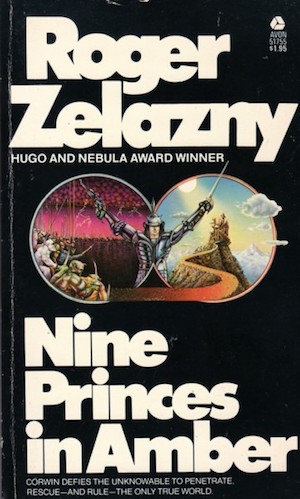
Carl Corey wakes in Greenwood, an unfamiliar hospital. He has no idea how he got there. Indeed, thanks to his amnesia, he has only the staff’s word that he is “Carl Corey” and not, to pick a name entirely at random, Corwin of Amber. Some applied violence later and the curiously untrusting Carl Corey learns the name of the benefactor paying for his stay at the hospital: his sister, Evelyn Flaumel.
Escaping the hospital, he confronts the woman in question, who turns out to be no more Evelyn Flaumel than he is Carl Corey. She is, however, his sister. In fact, Corwin has a number of siblings, a Machiavellian litter imbued with powers unknown on the Earth on which Corwin woke, many of whom are rivals for the otherworldly Crown of Amber and some of whom might, if they knew he had escaped Greenwood’s comfortable oubliette, simply kill him.
***
The Birthgrave by Tanith Lee (1975)
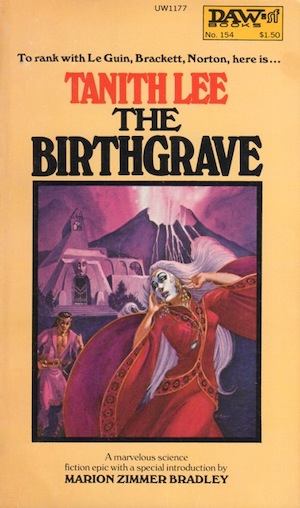
Centuries after a great people fell from power, an amnesiac wakes, haunted by a mysterious voice, aware that to remove their mask is to reveal a face that can freeze beholders in place. Venturing out into an unfamiliar world, they find the descendants of former slaves. Some believe the masked figure to be a god returned. Other accept that the amnesiac has genuine power, but see the awakened one only as an asset to use for their own ends. The amnesiac reinvents themselves over and over, adapting as conditions change. Those who seek to exploit this echo of a long-vanished age? They have less inspirational fates.
***
Shadow by K. J. Parker (2002)
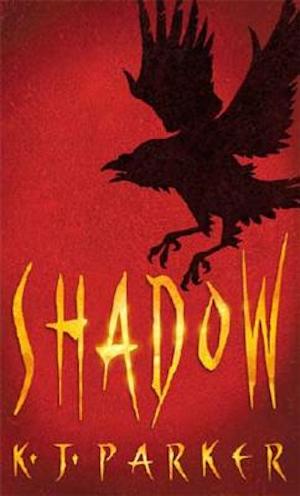
A lone survivor wakes on corpse-littered battlefield. Around him lie the remains of two armies—but it’s not clear to which one of them he belonged, if indeed he was a combatant at all. His clothes give no hint; his memories are no help, because (as you might expect from inclusion on this list) the survivor has no idea who he is.
Once he wanders from the battlefield, he encounters people who do know who he is. They want him dead. All he learns from them is that to know him is to be driven to homicidal fury…and the fact that he’s a preternaturally skilled killer.
Belatedly conscious that he must have been an unpleasant fellow before he lost his memories, the survivor vows to do better. Perhaps he used to be a villain, but now he will be a hero.
And you know to what destination good intentions lead.
***
Cold-Forged Flame by Marie Brennan (2016)
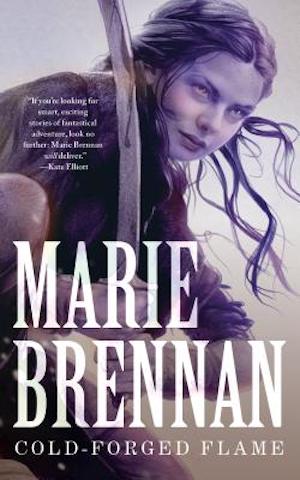
The swordswoman finds herself in the warrior’s version of the actor’s nightmare, with no idea who or what she might be, despite which she is magically compelled to perform an arduous quest for reasons unclear. The one certainty: she must collect blood from the cauldron of the Lhian. Who this Lhian might be and what views they might have about blood being collected from their cauldron—both are unknown. The revelation that most of the people who try to win a prize from the Lhian never return is cold comfort.
***
The True Queen by Zen Cho (2019)
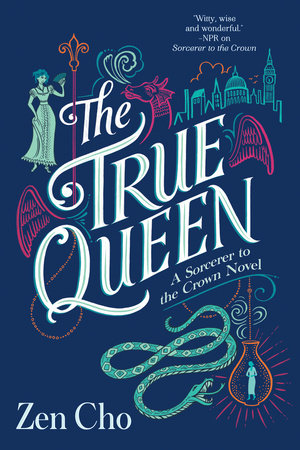
Arriving in a tumultuous storm, Sakti and Muna know their names but nothing of their past. The pair are so similar that the Janda Baik islanders assume they must be sisters. Offered a home by formidable witch Mak Genggang, the pair start new lives. One small complication: the sisters are both cursed: where Sakti is full of magic, Muna has not a jot. Sakti’s curse is more existential: she is progressively vanishing. Perhaps the
English Sorceress Royal’s college for magically gifted women can help…
It’s convenient that, even though the English are her enemies, the Sorceress Royal is a friend of Mak Genggang. It’s less convenient that Sakti vanishes while the sisters are traversing Faerie to reach England.
It is up to powerless Muna to rescue Sakti. If only Muna were not utterly powerless. If only Faerie were not on the verge of declaring war on England.
***
No doubt there are examples I could have used but did not. I plead memory lapse. Do feel free to remind me in comments of the works I forgot.
Originally published September 2020
In the words of Wikipedia editor TexasAndroid, prolific book reviewer and perennial Darwin Award nominee James Davis Nicoll is of “questionable notability.” His work has appeared in Publishers Weekly and Romantic Times as well as on his own websites, James Nicoll Reviews and Young People Read Old SFF (where he is assisted by editor Karen Lofstrom and web person Adrienne L. Travis). He is a four-time finalist for the Best Fan Writer Hugo Award and is surprisingly flammable.
[1]“Wait, aren’t characters entirely under their author’s control?” Mileage varies on this point. Many authors experience their characters as disconcertingly autonomous.











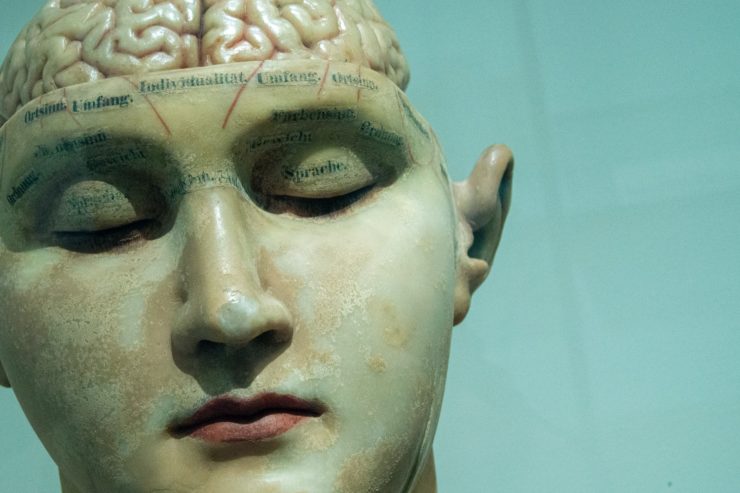
Roger Zelazny revisited the amnesia well a few times. One other instance which springs to mind is the minor character of Timyin Tin from Roadmarks. He is a humble Buddhist monk … now … whose memories of his past were erased. Two strangers arrive at the monastery and offer to return his memories, without telling him who he used to be.
Would you take such a gift?
The Rook, by Daniel O’Malley.
I loved it! Truly did not disappoint when we find out the secrets, and the sequel is also pretty damn awesome!
Having just reread this story and spent an inordinate amount of time trying to figure it out, I should mention Gene Wolfe’s great novella “Tracking Song”, in which the protagonist finds himself on another planet, apparently having been ejected from the Great Sleigh onto the planet’s surface, with no memory. He tries to find his way back to the Great Sleight with the help of a series of what appear to be uplifted animals.
And having mentioned Wolfe, then I should mention his series of Soldier novels (Soldier in the Mist, Soldier of Arete, Soldier of Sidon) in which the main character, a soldier in Ancient Greece (and later Egypt) forgets everything when he sleeps each night.
In Gene Wolfe’s classic Soldier in the Mist/Soldier of Arete/Soldier of Sidon, the main character wakes up with retrograde and anterograde amnesia just after the Greco-Persian battle of Plataea, keeping track of events only through his own notes to himself, which, in Wolfe’s favourite trope, aren’t entirely reliable. Does he really perceive gods and supernatural entities, is he imagining things, or lying to himself?
“Unforgettable SFF Books Involving Amnesia”
↑↑
I can see what you did here! 😉
Lord Valentine’s Castle by Robert Silverberg starts with an amnesiac Valentine, makes him into a juggler, drags him over a few continents, and ends with him restored to his throne as the junior monarch of the planet Majipoor. This opening book for Silverberg’s Majipoor Chronicles was definitely can’t-put-it-down material for me in my early 20s, and brought me to seek out even more of Silverberg’s work (I’d been a fan since reading Thorns at 13).
Does Diana Wynne Jones’s Archer’s Goon count?
Amnesia plays a role in the plot of Mirror Dance by Lois Bujold.
Bujold’s classic work Mirror Dance. Miles Vorkosigan gets a bad case of amnesia after other things happen to him.
Don’t know if it counts, since it’s not the focus of the novel, but amnesia or suppressed/ altered memory is immanent to the main plot of “Look To Windward”, Ian M. Banks sixth Culture novel.
It shows the aftermath(s) of a war fought 800 years ago (speaking of time-spans in the Culture series),unspeakable crimes commited in it’s wake and how different factions deal with it, including the costs of a possible revenge act.
If magical amnesia counts, ‘The Binding’ by Bridget Collins. Although the amnesiac(s) are not aware they are such.
@2: The Rook is a good story — real stakes and plausibly put together.
Digging further back into memory: Asimov’s The Stars, Like Dust features someone who first presents as a random not-from-the-village who is short on intelligence; figuring out who he really is makes one of the drivers of the story.
“Morality”, the last part of Sturgeon’s More Than Human, starts with someone who is not only as unknowing of himself as “Carl Corey”, but can’t even see certain objects.
The assortment of titles so far suggests that a splitter could further divide the stories into those where the amnesia is an accident, those where it was a violence committed on the character, and those where the character did it to themselves — but knowing which of those a story fell into would spoil some of them.
Helen Wright, A Matter of Oaths… is a classic in the amnesia genre. How to rebuild a self when amnesia marks one as an oath breaker or criminal?
But for something entirely different, consider Jennifer Cole’s non-fiction study of historical memory and forgetting in Madagascar, Forget Colonialism? (2001). Anthropological history can be more engaging than most fictions. Sometimes.
I can think of at least a couple of Cordwainer Smith stories (“Golden the Ship Was–Oh! Oh! Oh!” and “The Dead Lady of Clown Town”) where the Lords of the Instrumentality have no hesitation in wiping memories, implanting false memories, or even replacing entire personalities, if it suits their purposes.
@12: do you perhaps have the wrong Asimov title there? Because what you’re describing sounds much more like The Currents of Space.
(Unless I’m the one who’s misremembering. Which would only be appropriate.)
@6. rpresser
You beat me to it. Lord Valentine’s Castle was the first thing I thought of😎
And I don’t know if really counts, but in The Hitchhiker’s Guide to the Galaxy, Zaphod Beeblebrox had a section of his brain severed from the rest of it so he couldn’t have access to those memories.
Nine Princes in Amber is my favorite Amber novel, and I loved The Birthgrave, which made me a Tanith Lee fan. Never realized they were both amnesia books.
Bourne Identity, etc. I’ve only seen the (mostly excellent) movies, but presume they’re true to the books vis-a-vis amnesia. And while not marketed as sf, they technically are.
Lots of good examples in Zelzany, and Wolfe, but a recent example is Piranesi by Suzanne Clark. The narrator remembers nothing before his isolation including his name.
The protagonist of Jack Vance’s Marune: Alastor 933 is suffering from amnesia, transported to a planet far from his home. The investigation into his identity and the circumstances of his unwilling journey to a distant world form the bulk of the novel.
As far as Nine Princes in Amber goes, does anybody besides me suspect that the book is the inspiration for the original (and only, there can be only one, no matter what anybody says) Highlander?
Farmer’s story “Sketches in the Ruins of my Mind” plays worldwide amnesia for horror. It was originally developed as an idea of a Star Trek episode.
Silverberg’s “How It Was When the Past Went Away” does something similar
Sometimes the ‘amnesiac protagonist’ is just a lazy way to introduce the reader to the world in the story (it’s definitely over-used in computer games). It takes a deft touch (which the above authors have) to pull it off successfully.
Personally I’m a total sucker for this trope, but as phuzz says it needs to be done well.
Octavia Butler’s “Fledgling” starts with the protagonist with no memories and this is very important to the plot and world building.
I also enjoy this trope and variations on it, especially when well-executed.
Nick Sagan’s Idlewild has a propulsive opening. A young man regains consciousness in pure terror. He has no idea who he is, but knows someone just made a darn good attempt at killing him. Didn’t quite succeed. Now our protagonist has to save himself, even though he has no idea who he is or who anyone else is or who might be an enemy. It’s quite a ride.
Mary E. Pearson’s The Adoration of Jenna Fox. Young woman, car accident, memories are patchy and returning slowly, and there’s something very weird going on and she realizes she doesn’t have a fraction of the story.
Honorary mention to Didier van Cauwelaert’s Out of My Head (translation of French Hors de moi, later repackaged as Unknown given the movie adaptation with Liam Neeson) – a psychological thriller with some SFF content in which a guy named Martin Harris wakes up in the hospital after a bad car accident and goes home and there’s a different dude there insisting that no, he is Martin Harris. Worse, the impostor is a darn good actor. What the heck is going on?
Eden of the East begins with the protagonist amnesiac, butt naked, holding a cell phone and a gun, and standing in front of the White House. It gets weirder from there.
Hull Zero Three is a great book using this trope by Greg Bear from 2010, I think.
@15: quite right — damfino what I was thinking. (What, was I thinking?) Currents features an amnesiac; Dust is the Ruritanian one.
Floyd Wallace (a/k/a F.L. Wallace) — who, ironically, is now nearly forgotten– wrote some excellent SF stories for Galaxy in the 1950s. His “Forget Me Nearly” (1954) is about a man whose memories have been artificially wiped and must search for not only his own identity but also the identity of the enemy who did it to him. It reads like SF written by Cornell Woolrich. Well worth tracking down (I think it’s out of copyright now.)
The protagonist of Alistair Reynolds’ Chasm City has voluntary amnesia and memory replacement.
@29: “Forget Me Nearly” is available on Project Gutenberg https://www.gutenberg.org/ebooks/author/26832
Two fantasy novels which occur to me are Poul Anderson – Three Hearts and Three Lions (1953) and Philip Jose Farmer – The Maker of Universes (1965). IIRC, in both of them the protagonist is transported from contemporary Earth to another world (or time). They retain their memories of their contemporary existence, but don’t remember that they had significant roles on these other worlds before.
Speaking of Lois McMaster Bujold’s novels, let’s not forget Memory.
Le Guin’s City of Illusions is my personal favorite in this category. It explores Timyin Tin’s dilemma at length.